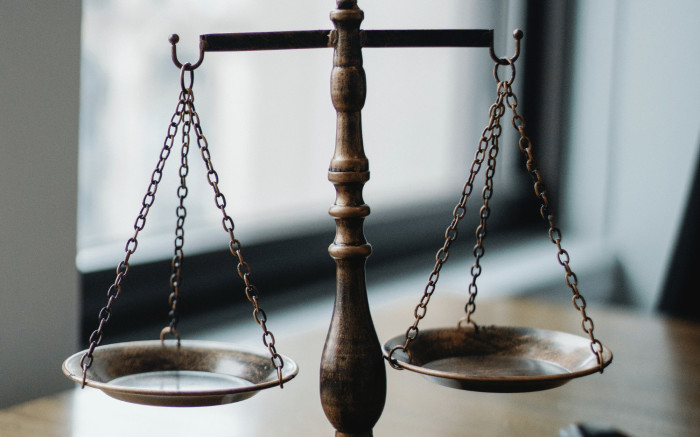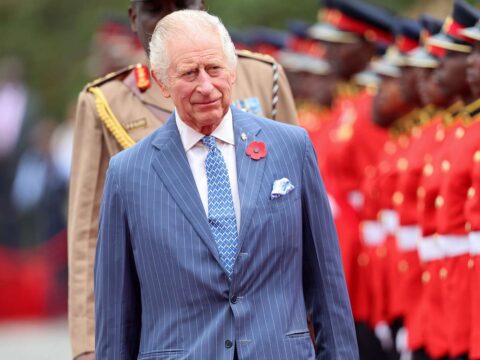
Last week, Oscar Pistorius was granted parole after being initially denied in March by the Supreme Court of Appeal, while the corruption case against Matshela Koko and 18 others was struck off the roll.
Stock image of a judgement scale. Picture: Sora Shimazaki/Pexels
JOHANNESBURG – With Oscar Pistorius and Matshela Koko both winning their freedom, it was an important week for the country’s justice system.
On Friday, a parole board granted Pistorius parole after a total of eight years behind bars for the murder of his model girlfriend, Reeva Steenkamp.
Earlier in the week, meanwhile, the Middleburg Regional Court struck from the roll the case against Koko and his 18 co-accused in a seminal State capture matter centred on R2.2 billion’s worth of dodgy contracts for work at the Kusile Power Station.
PISTORIUS GRANTED PAROLE
Pistorius is a free man – well, just about.
He’s set to be released from prison, where he’s currently serving a sentence of 13 years and five months for the murder of Steenkamp, on 5 January 2024.
This was after finally being granted parole on Friday, after multiple failed attempts.
Initially, he was found guilty of culpable homicide and sentenced to five years in prison.
He was released on parole after just one year, but shortly afterwards his conviction was overturned on appeal and replaced with one of murder, and he was subsequently re-sentenced first to six years in prison and then, again on appeal, to 13 years and five months.
The court found there were no mitigating factors warranting a deviation from the minimum prescribed sentence of 15 years in prison but took into account time he’d already served.
As a result of the various appeals, there wound up being some confusion around when exactly his sentence started and when it reached the halfway mark, and he became eligible for parole.
In March, he applied for parole, but was refused because of what later turned out to be a mistake on the part of the Supreme Court of Appeal, which was the sentencing court in this case, and prior to the hearing, issued a communique to the effect that his sentence kicked in, in 2016 and was only eligible for parole in August 2024.
Pistorius then turned to the Constitutional Court that in October and it made a contrary ruling, that his sentence started in 2017 and he had, in fact, been eligible for parole back in March.
On the back of that ruling, the parole board convened at the Atteridgeville Prison in Pretoria on Friday to consider his early release.
Reeva’s mother, June Steenkamp, did not oppose parole, nor did she attend the proceedings, on the back of what’s been a difficult year for her in which she’s lost multiple loved ones, including her husband and Reeva’s father, Barry Steenkamp.
But she provided a victim impact statement that was read out by a legal representative at the hearing and which Rob Matthews – whose own daughter, Leigh Matthews, was kidnapped and murdered in 2004 and was there in a representative capacity on Friday – shared with the media.
“When she fell off a horse at the age of twenty and had to spend months recovering, she decided to become a model and use her public profile to garner support for the victims of domestic abuse and rape. In the 29 years that Reeva lived, she developed into a well-rounded young lady, completed her law degree and started a successful modelling career.
“She already started using her voice to advocate the plight of those that were exposed to domestic abuse and rape. It has taken me the best part of 10 years to come to realise that Reeva appeared to have fulfilled her destiny during her life and more abundantly so, in her tragic death. Reeva’s name and her demise continue to raise awareness around gender-based violence worldwide. But did Reeva fulfill her dreams? I know she did not,” reads June’s letter.
In the end, a decision was taken to approve Pistorius for parole.
“Classified as a first-time offender with a positive support system, Mr Pistorius was considered in line with Section 73 of the Correctional Services Act and will continue to receive support in the system of community corrections,” said Correctional Services spokesperson Singabakho Nxumalo.
His parole is subject to various conditions, including that he does community service and attend therapy centred on anger management and gender-based violence, something June expressed concerns around.
COURT SCRAPS KOKO’S CORRUPTION CASE
On Tuesday, the case against Koko and 18 others, who were facing massive fraud and corruption charges before the Middelburg Regional Court, was scrapped – for now at least.
The case relates to what a Special Investigating Unit probe revealed was the irregular appointment of Swiss engineering company ABB to do R2.2 billion’s worth of work at Kusile Power Station. It was further allegedly irregularly subcontracted to a company called Impulse International, with links to Koko’s stepdaughter Koketso Choma, as well as other companies.
Investigations kicked off in 2017 and the first arrests were effected in October 2022, but more than a year later, there were various witness statements and expert reports outstanding, and the case still wasn’t ready for trial.
And the court now struck the matter from the roll as a result of what it’s found were unreasonable delays.
So, it’s back to the drawing board for the State, which could reinstate the matter in the future, but would have to get written instructions from the National Director of Public Prosecutions.
Koko will, of course, be pleased with the outcome, having told media at court afterwards that his prosecution was a “hate crime”.
“I think South Africans have been taken for a ride. Justice cuts both ways. Put yourself in the shoes of South Africans that are innocent, that are law-abiding, they expect these serious charges to be answered. They do, surely, and by the way I will answer them.
“When they come back, I will answer them. You might as well take the Eskom chapter of the State capture commission and throw it in the bin. Throw it in the bin, it means nothing. South Africans are being taken for a ride. It’s a hate crime what is happening.”
It came as a blow to the National Prosecuting Authority’s (NPA) Investigating Directorate (ID), though, especially on the back of the accused in the Nulane matter – another seminal State capture case having been acquitted earlier in 2023.
ID spokesperson Sindisiwe Seboka said, though, that they were planning on re-enrolling the matter at a later date.
“The NPA’s Investigating Directorate is confident that the Eskom Kusile R2.2 billion matter will be re-enrolled as soon as outstanding aspects of the investigation are completed. It should be noted that this decision is not tantamount to an acquittal or withdrawal of the charges. The ID will continue investigating the case in line with the original case strategy that it developed for this complex matter.”
The State is also currently trying to appeal the outcome in the Nulane matter.






Recent Comments